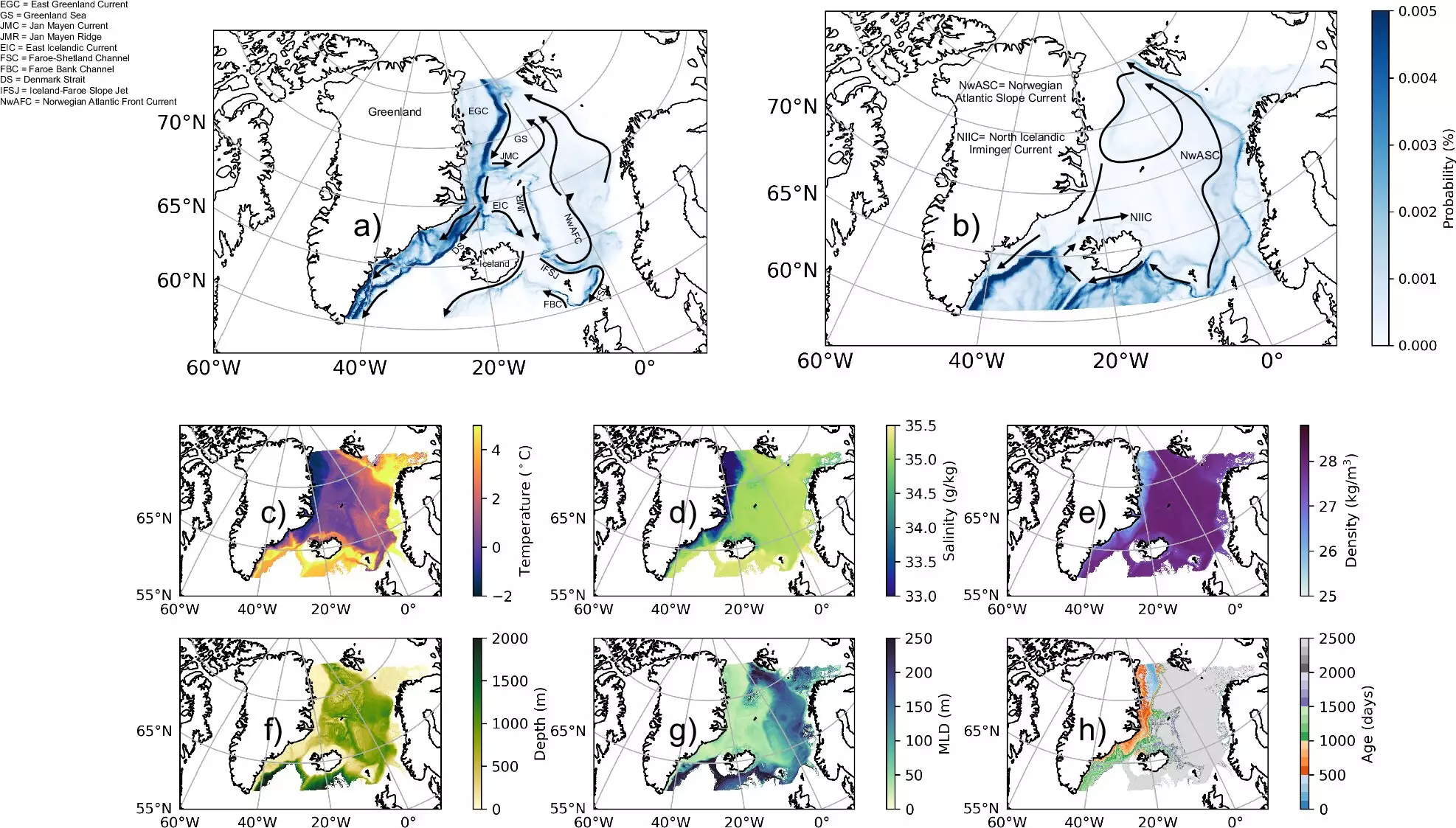

A recent study conducted by researchers from the University of Southampton, the Indian Institute of Technology Bhubaneswar, the National Oceanography Center, and Stockholm University has provided new insights into the importance of the mixing of Atlantic and Arctic waters in sustaining the Atlantic Meridional Overturning Circulation (AMOC). The AMOC plays a vital role in regulating Earth’s climate by distributing heat around the planet, and maintaining relatively mild temperatures in regions like Northern Europe. This article will delve deeper into the findings of the study and its implications for our understanding of climate processes.
The study revealed that the lower limb of the AMOC, which consists of deep, cold, dense water flowing southward in the Atlantic Ocean, is composed of 72 percent Atlantic waters and 28 percent Arctic waters. This composition highlights the significant contribution of Arctic waters in enhancing the density of the AMOC, as they mix with colder, fresher waters from the North Atlantic. This mixing process results in the formation of denser water that contributes to the strength of the AMOC.
The findings challenge previous assumptions that focused primarily on heat loss in specific regions without considering the role of Atlantic-Arctic water mixing. The researchers estimate that 33% of the transformation of warm, salty water into colder, fresher, and denser water can be attributed to this mixing process, with the remaining 67% linked to interactions between the ocean and the atmosphere. These results have significant implications for our understanding of how climate change may impact the AMOC in the future.
Climate models predict that the AMOC could weaken as the planet warms, leading to a shallower and slower circulation pattern. A weaker AMOC circulation has major consequences for global climate patterns, including much colder temperatures in Northern Europe and sea level rises along the eastern coast of the United States. Additionally, a weakened AMOC could shorten the time carbon dioxide stays in the ocean, accelerating climate change and its impacts on the planet.
The study underscores the importance of accurately representing water mixing processes in climate models to better predict future climate scenarios. The complex interplay between climate and global ocean circulation processes highlights the need for a more comprehensive understanding of how changes in the AMOC can impact Earth’s climate. By shedding light on the crucial role of Atlantic and Arctic water mixing, researchers aim to improve our ability to predict and mitigate the effects of climate change on a global scale.
In the world of pharmaceuticals, innovation often hinges on finding new compounds that can lead…
In the heart of the Amazon basin, drastic climate changes present an alarming reality that…
Air fryers have rapidly surged in popularity, captivating home cooks and culinary enthusiasts alike. When…
In an era where technology and social media reign, the importance of sleep often takes…
In an era where environmental consciousness is paramount, the maritime industry has long been scrutinized…
Radionuclides, often relegated to discussions surrounding nuclear energy and radioactive waste, have far-ranging implications for…
This website uses cookies.